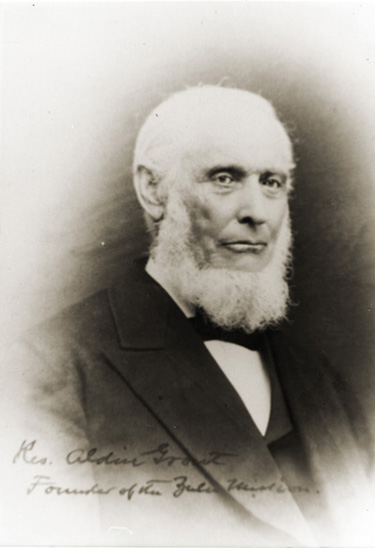Whiting Griswold Papers
1837-1890
5 boxes 2.5 linear feet
Call no.: MS 814
A politician hailing from Greenfield, Mass., Whiting Griswold was born in Buckland on Nov. 12, 1814, the son of Maj. Joseph Griswold. Earning his way through Amherst College (BA, 1838) by teaching in the local schools, Griswold studied law in the offices of Grennell and Aiken, but politics soon came to dominate his life. A serious player in partisan politics, he won election as a Democrat to the state House in 1848-1850 and then the Senate in 1851-1852. After taking part in the state Constitutional Convention of 1853, Griswold supported Buchanan for the presidency in 1856, but changed party to support Lincoln, winning terms in the state Senate on a Coalition vote in 1862 and as a Republican in 1869. Griswold was twice married: first, to Jane M. Martindale (1844), with whom he had two children, and second to Frances L. Clarke (1856), with whom he had three children, including the attorney Freeman Clarke Griswold (1858-1910), a graduate of Yale and Harvard law school (1884), who represented Greenfield in the State House in 1888.
The Griswold papers are dense collection documenting the lives and careers of two state-level politicians in Massachusetts during the years straddling the Civil War. Contents range from discussions of the political crises of the 1850s and Civil War to political agitation over railroad construction in Franklin County, to elections, political speeches, and papers written as a student. The collection includes five letters of the Transcendentalist minister James Freeman Clarke and some essays and correspondence from Freeman Griswold.
Acquired from M&S Rare Books, Mar. 2014
Subjects
Greenfield (Mass.)--HistoryMassachusetts--Politics and governmentMassachusetts. HouseMassachusetts. SenateContributors
Griswold, Freeman ClarkeTypes of material
Broadsides


